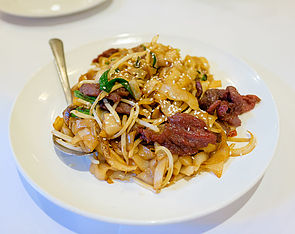-
 BEFORE YOU MOVE
BEFORE YOU MOVE
-
 GETTING HERE
GETTING HERE
-
 LIVING HERE
LIVING HERE
-
 GETTING AROUND THE REGION
GETTING AROUND THE REGION
-
 WORKING WITH US
WORKING WITH US
-
 LIFE AFTER MONKEYTREE
LIFE AFTER MONKEYTREE
-
 USEFUL LINKS
USEFUL LINKS
Living here
What does a typical meal cost?
A ‘typical’ meal in China means Chinese food, such as rice and meat, dumplings, soups, and noodles with various toppings. By any Western standard, typical food is cheap, sometimes costing only around US$1-2 for a full meal.
What does a typical Western meal cost?
‘Typical’ Western food in China is slightly harder to find, but it still will not break the bank. You can expect to spend in the region of US$8-12 for a full Western meal.
I’ve heard that Google and Facebook are blocked in China. Is this true and is there a workaround?
Unfortunately, it is true. Furthermore, with Google and Facebook having acquired many of the apps that you likely use on a daily basis, many auxiliary products may you may not even associate with those companies are also difficult to access. A typical workaround is to get a VPN. We cannot and do not suggest or endorse any particular VPN, but you are advised to do some independent research. Somewhat ironically, you’ll find many answers easily available on Google.



How much money can I expect to save per month?
On an entry level teacher’s salary, it’s possible to save over RMB12,000 per month, without limiting your ability to enjoy yourself. Savings are directly related to your lifestyle.
What do I do about laundry?
Most flats (all Monkey Tree flats) have a washing machine. Very few flats have dryers, so air-drying is the most common thing to do. Alternatively, there are cheap laundry services on nearly every block, where you can just bring a bag of laundry and a couple hours later pick it up clean, dried, and folded. Those places typically charge by weight and are affordable enough that many people never bother doing their own laundry at home.
How do I get around the cities?
The most common way to get around most cities is the subway trains. Taxis are abundant everywhere so you’ll never be stranded anywhere, ever. One way that many teachers choose to get around is by moped (<50cc motorbikes). They are easy to acquire and ubiquitous. We cannot provide specific information on driving permits and insurance, but doing just a bit of research once you’re in your new city will give you all the answers you’ll need.
How long does it take to get from point A to point B?
Chinese cities are huge, both geographically and by population. So, getting from one point in the city to another is entirely dependent on where you live, where you work, and where you’re going. We will help you to find the best location to suit your lifestyle and daily commute to work.
Is there a large expat community?
Yes. Every city has a ton of expats from all over the globe. The trick is to find them and to get involved with groups that regularly do whatever you’re interested in. Ask your recruitment manager or your center manager to help you form connections prior to arrival or once you’ve settled into a routine.
I’m outdoorsy. What can I do outdoors?
While many Chinese cities can appear from the outside to be concrete jungles, they all reserve a lot of green space within the cities for relaxing. China is also mountainous and has thousands of miles of coastline; it snows heavily in the winter in the north of the country, and remains relatively balmy in the south. Just within China, you can do any sort of adventure that you’d like.
Do I need a visa to get into China?
Short answer, yes. Some nationalities do not require visas, but generally speaking, you will require a tourist visa to enter China and a work visa to work. The process for obtaining a work permit isn’t straightforward, but our recruitment team will help you with the process.

